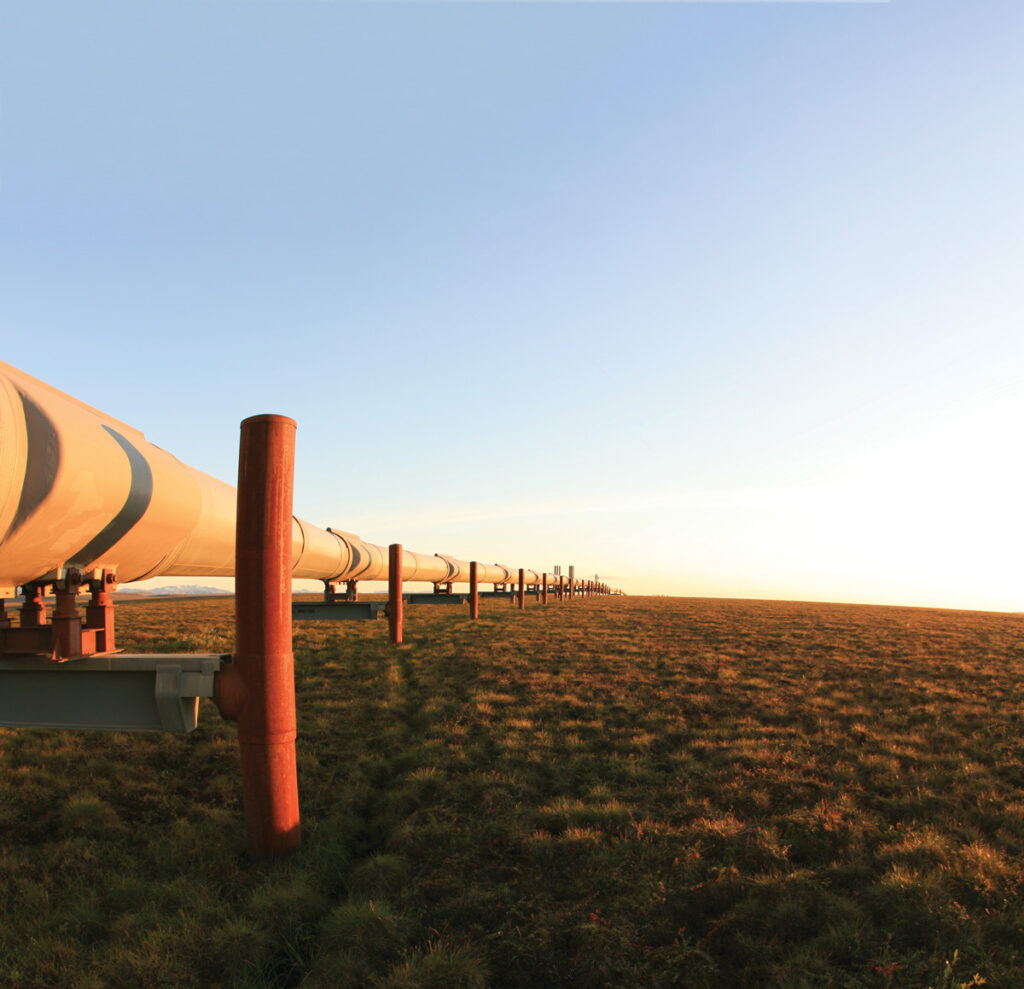Trans Mountain Two-Step

Aboriginal Groups Split on Feds Purchase of Pipeline.
If ever Canada needed an example to understand that Indigenous groups’ views and ideas about economic development are not homogeneous it need not look any further than the ongoing Trans Mountain Pipeline saga.
The same day Finance Minister Bill Morneau and Natural Resources Minister Jim Carr announced that the federal government had reached a commercial agreement with Kinder Morgan to purchase the pipeline and all of the infrastructure needed to complete the expansion project for $4.5 billion, reaction from Aboriginal leaders was swift and varied.
While some sought to buy-in to the massive investment opportunity others recoiled in anger. The Squamish Nation hurried to launch a statement saying it was “appalled by the decision by the Government of Canada to risk billions of taxpayer’s dollars to purchase the assets of Kinder Morgan and to pursue completion of the Trans Mountain Pipeline Expansion” which it says threatens Squamish Nation territory and its people.
“This is a continued betrayal of promises made to us by Prime Minister Justin Trudeau. He told Canada’s Indigenous people that our rights would be respected and upheld. He has broken that promise. He promised us he would put the pipeline expansion through a brand new review. He has broken that promise as well,” says Khelsilem, elected councilor and spokesperson for Squamish Nation.
“This decision benefits only Texas-based Kinder Morgan, rewarding them for a project that was becoming increasingly risky. Now the Trudeau Government is making all Canadians take on that risk in the face of strong opposition and a move by Europe, China and other nations to reduce their dependence on fossil fuels for the good of their citizens and the planet.”
He added that the Squamish Nation will continue to fight to protect its inlet, communities and economy.
“Regardless of who owns the project our position has not changed. An expanded Trans Mountain pipeline would triple the capacity of diluted bitumen and is expected to increase the number of tankers from five to 35 each month,” he said. “The tankers pass by three Squamish Nation communities on the Burrard Inlet and a single diluted bitumen marine spill would be catastrophic for our communities, our economy, and our home as a Squamish people.”
Not a Long-Term Owner
While the government is taking swift action to buy the pipeline, it is not, however, the intention of Ottawa to be a long-term owner of this project. At what it refers to as “the appropriate time,” Canada will work with investors to transfer the project and related assets to a new owner or owners, in a way that ensures the project’s construction and operation will proceed in a manner that protects the public interest.
Morneau confirms that several Aboriginal groups have already expressed an interest in investing in the pipeline. Some 43 Aboriginal groups had signed economic agreements with Kinder Morgan, including 33 in B.C., related to the expansion and now at least a few are looking at this development as a chance to sweeten the pot for their members.
One of those now considering taking an ownership stake is Cheam First Nation, which is located about 100 km east of Vancouver.
According to its Chief Ernie Crey, he was happy to hear that Ottawa had reached a deal to purchase the pipeline and was taking over the project in order to ensure its timely construction.
“It means a lot not only to my community, but also the other 42 First Nations directly on the pipeline route whose daily lives, their jobs, are affected by the pipeline,” he told CBC, adding he has already spoken to his council about possibly partnering with other investors to buy a stake in the project. “In principle, we would be willing to invest.”
Summer Work Starting Soon
The move by Ottawa will guarantee the resumption of work for the summer construction season, protecting thousands of jobs in Alberta and B.C. Federal loan guarantees will ensure that construction continues through the 2018 season, eliminating the uncertainty for families whose financial security relies on this project going ahead this year. The transaction with Kinder Morgan is expected to close in August.
“Our government believes that the commercial agreement we have reached with Kinder Morgan is the best way to protect thousands of good, well-paying jobs while delivering a solid return on investment for Canadians,” said Finance Minister Bill Morneau. “This is an investment in Canada’s future.”
Carr added that the agreement will help advance Canada as an energy leader, as a place where good projects get built.
“This is yet another step in building an energy future with Canadians where the environment and economy go hand-in-hand,” he said.
The Trans Mountain Expansion Project involves building a new 1,147 km pipeline along the existing Trans Mountain Pipeline running from Edmonton to Burnaby, B.C., and expanding the capacity of the terminal in Burnaby.
This expansion will increase daily capacity from 300,000 to 890,000 barrels, while improving market access to the U.S. Pacific Coast and Northeast Asia.
In the course of the federal review of the project, the Government consulted 117 potentially affected Indigenous rights holders for four additional months, marking the deepest federal consultations ever done on a major project.
Ottawa’s decision to buy the Trans Mountain Pipeline and push its expansion project forward does not violate its commitment to upholding Indigenous rights or its endorsement of the UN Declaration on the Rights of Indigenous Peoples (UNDRIP), insists Crown-Indigenous Relations Minister Carolyn Bennett.
Appearing before the standing committee on Indigenous and Northern Affairs the week of the deal, she said Ottawa’s support for UNDRIP, and its key component related to needing free, prior and informed consent (FPIC) when dealing with Indigenous land access and rights, was not violated by the pipeline purchase.
“We have been very clear that FPIC is not a veto and consensus does not mean unanimity,” she said.
All Agreements Maintained
Morneau confirmed that all existing agreements with Kinder Morgan would be preserved despite the government’s purchase and planned future sale.
“And it will reassure investors that Canada is a country that respects the rule of law and that gets big, important things done,” he said. “For Indigenous groups, we will make sure that existing profit sharing or other agreements established with Kinder Morgan remain in effect. Many investors have already expressed interest in the project, including Indigenous groups, Canadian pension funds, and others.”
To facilitate the transfer of ownership, he added that the government will extend the federal indemnity to protect any new owner from costs associated with politically motivated delays.
“Make no mistake: this is an investment in Canada’s future,” he said. “To investors who are considering Canada as a place to build big, important, transformational projects like the Trans Mountain Expansion – know that you have a partner in Ottawa.”
Carr echoed those sentiments and stressed that the decisions to approve and now purchase the Trans Mountain Expansion Project were rigourously reviewed.
“This project had to pass a high bar. Our government improved how we assess projects, as soon as Canadians elected us. That move included opening the doors to public consultation, filling important scientific gaps, actually accounting for carbon pollution, and accomplishing the single deepest Indigenous engagement process in the history of this country. This was no easy test – and we approved the project, in the interest of Canadians, subject to those improved and crucial standards and conditions – 157 conditions, to be exact.”
He said although the project has become a symbol of the energy debate raging in Canada, it is also an example of how change can happen.
“Better science. Real co-development with First Nations and Metis partners. A climate change plan. Public participation. Environmental protection. These are all values we will continue to build into Canada’s energy decision-making,” said Carr.
“The majority of Canadians support this project. The majority of Canadians understand that we are in a transition to a clean growth economy, and we will not get there overnight.”
The Kinder Morgan Canada board also agreed to work with the government to seek a third party buyer for the Trans Mountain pipeline and Expansion Project (TMEP) through July 22.
“We are pleased to reach agreement on a transaction that benefits the people of Canada, TMEP shippers and [Kinder Morgan Canada Limited] shareholders,” said company Chairman and CEO Steve Kean. “The outcome we have reached represents the best opportunity to complete TMEP and thereby realize the great national economic benefits promised by that project. Our Canadian employees and contractors have worked very hard to advance the project to this critical stage, and they will now resume work in executing this important Canadian project.”
TD Securities is serving as financial advisor to Kinder Morgan and is rendering a fairness opinion on the transaction to the company’s board. ABQ

